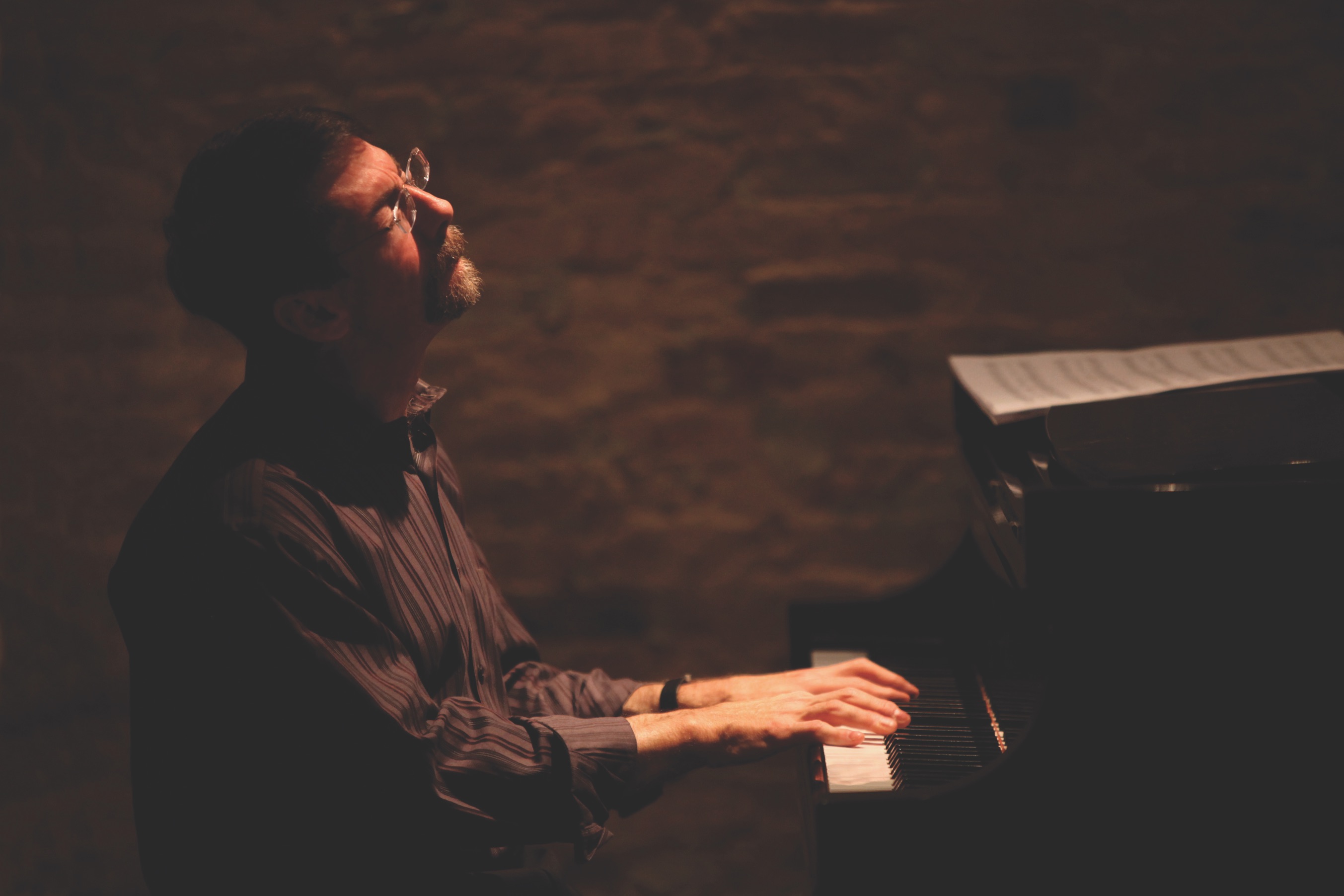 Photo by Steve J.Sherman
Photo by Steve J.Sherman Top contemporary jazz pianist Fred Hersch, who is nominated for two 2018 Grammy Awards, has long channeled his turbulent life into his work. The 62-year-old has faced down sneering disapproval as one of the first openly gay men in jazz. At a gay bar audition, Hersch once had to show how he looked in a tight T-shirt and sing show tunes for the owner.
And he’s battled serious health issues, including AIDS-related dementia and being in a coma for two months in 2008. When Hersch awakened, muscle atrophy prevented him from playing and performing for more than a year.
Hersh reflects some of these troubles on his new CD of solo pieces, “Open Book,” a Grammy nominee for best jazz album. His improvised piece, “Through the Forest,” is full of roiling chords and dissonant accents.
Hersch is a prodigious interpreter of notable composers, including Johnny Mandel, Billy Strayhorn, Rodgers and Hammerstein, and Thelonious Monk. He is known for getting beneath the surface of a tune and revealing something new about it. On Sadik Hakim and Monk’s ballad, “Eronel,” Hersch recasts the tune by displacing the rhythm in a personal way.
Monk’s music, with its knotty themes and compelling rhythms, is a constant for Hersch. “They’re interesting puzzles,” he said in a telephone interview from his New York home. “You can take them apart and reassemble [them] in surprising ways. Each one is a great set of metrics to improvise on, and they contain potential for all kinds of dancing figures and rhythms.”
Hersh, who began playing the piano at age 4 while growing up in Cincinnati, had a German-Jewish grandmother from Selma, Ala., where her husband was the mayor.
“I was raised Jewish,” he said. “But I’ve become a practicing Buddhist. … My Jewishness is more of a social construct than religion.”
Hersch is known for getting beneath the surface of a tune and revealing something new about it.
As a young pianist, Hersh attended the New England Conservatory, then moved to New York. He found jazz through personal inquiry.
“In Cincinnati, I didn’t know anyone who taught jazz,” he said. “I had to figure it out and I had to find it. But the older jazz musicians couldn’t have been nicer to me. They gave me tough love but they always supported me.”
Hersch’s well-received book, “Good Things Happen Slowly: A Life In and Out of Jazz” (Crown Archetype, 2017), also is filled with personal disclosure and anecdotes. He recounts how, as a young musician, he took a $50-a-night job that began at 4 a.m., describing it as “rough on the system.” He adds, “More than once, I ended up spending the $50 on coke to get me through the gig.”
“I recorded that long improvisation ‘Through the Forest’… [as] a companion piece to my memoir,” Hersch said. “I wanted it to be similarly open.”
After a dozen Grammy nominations since 1993 but no wins, Hersch is pragmatic about his chances this year. “It gives my agent and manager something to talk about,” he said. “Does it mean that I’m in the top five jazz pianists in a given year? Who knows?”
The Grammy Awards will take place on Jan. 28 in New York, but Hersch will not attend, since his trio of nine years will be in Costa Rica.
“We’ll check up on the Grammys from there,” he said.






















 More news and opinions than at a Shabbat dinner, right in your inbox.
More news and opinions than at a Shabbat dinner, right in your inbox.